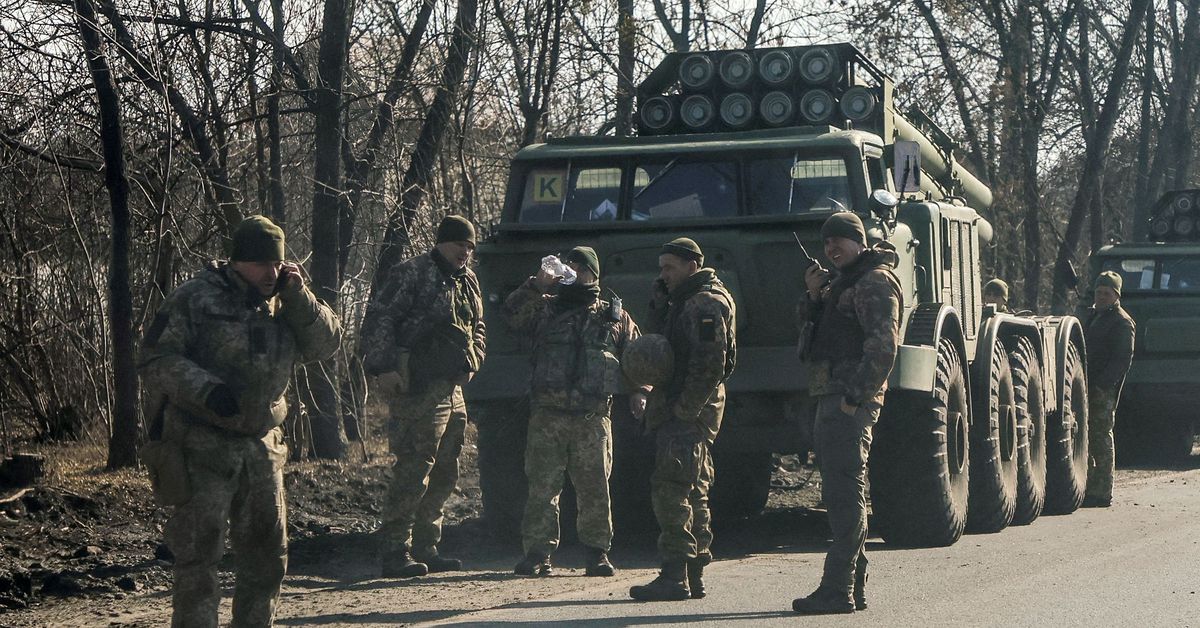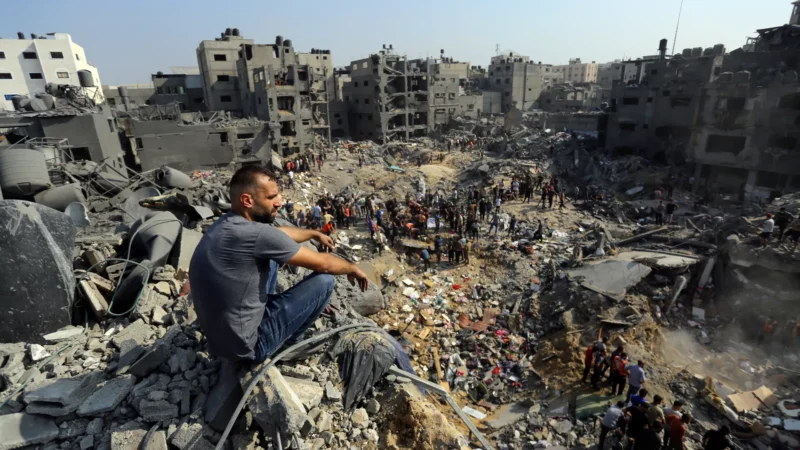Ukraine’s forces no match for Russia in manpower, gear and experience

Ukrainian army soldiers stand next to multiple launch missile systems, after Russian President Vladimir Putin authorised a military operation, in eastern Ukraine, in Kharkiv region, Ukraine February 24, 2022. REUTERS/Antonio Bronic
Summary Modern weaponry, Syria experience give Russia massive advantage
Russia seen targeting Kyiv, trying to encircle forces in east
Ukrainians outgunned but highly motivated to defend
Feb 24 (Reuters) – Ukrainian forces are defending against an invasion on three sides by a Russian military that is bigger, better armed and steeped in recent combat experience from Syria’s civil war.
Missiles struck Ukrainian cities on Thursday, and Ukraine reported columns of troops pouring across its borders from Russia and Belarus and landing on its Black Sea and Azov Sea coasts. read more
Russia’s objective remained unclear but the capital Kyiv was clearly a principal target, with President Vladimir Putin saying he intended to “strive for the demilitarisation and denazification of Ukraine”.
Register now for FREE unlimited access to Reuters.com Register
“The Russian military command will be wanting to move very quickly, particularly to isolate and then take over Kyiv, to prevent a coherent Ukrainian defence from forming and, if they can, disrupt the movement of Ukrainian reserves,” said Ben Barry, senior fellow for land warfare at the International Institute for Strategic Studies (IISS).
A Ukrainian presidential adviser said Hostomel airfield, northwest of the capital, had been captured by Russian forces – something Barry said would enable them to fly in extra hardware including light armoured vehicles to intensify the assault.
The Russian advances along the Azov Sea coast and near Kharkiv in the northeast also suggested an attempt to encircle Ukrainian forces in the east of the country, he said.
The United States estimated Russia had more than 150,000 troops massed around Ukraine’s borders on the eve of the invasion, plus tens of thousands of Russian-backed fighters in breakaway regions of eastern Ukraine.
Ukraine’s total active armed forces number 196,600, according to the authoritative IISS Military Balance report released last week.
But while highly motivated to defend the country, and newly equipped with Turkish drones and U.S. and British anti-tank missiles, analysts say they are gapingly vulnerable, in particular to air and missile attack. Ukraine’s navy is limited to one major warship and a dozen patrol craft, against the might of Russia’s Black Sea Fleet.
MOBILE VERSUS STATIC
Ukraine’s experience from eight years of fighting with separatist forces in the east has been dominated by static World War One-style trench warfare.
By contrast Russia’s forces showed in Syria, where they intervened on the side of President Bashar al-Assad, that they are capable of moving swiftly across large distances, assembling floating bridges to cross rivers, and synchronising ground manoeuvres with air and drone attacks.
Russia’s air force delivered tens of thousands of air strikes, inflicting thousands of civilian casualties, according to the Syrian opposition. Tens of thousands of Russian service personnel saw duty in Syria, and senior land, air and special operations (Spetsnaz) personnel were cycled through tours of duty, according to Barry.
Russian soldiers gained extensive experience of urban warfare alongside Assad’s allies from Lebanon’s Hezbollah, which could prove valuable if battles ensue for major Ukrainian cities.
Analysts at Janes, a defence intelligence provider, said Russia had also used the Syrian intervention to test new and modernised air, ground and naval equipment including next-generation Su-57 fighter jets and Kalibr cruise missiles.
“To prevail against Russia, the Ukrainian forces are going to have to display a very high standard of tactics, be very bold and resolute and have a campaign plan that is superior to Russia’s,” said Barry.
“The one advantage the Ukrainians have got is they’re fighting for their own country on their soil. Secondly, it appears large numbers of civilians are volunteering to fight alongside the armed forces, and that may make any Russian attacks on urban areas more difficult.”
Register now for FREE unlimited access to Reuters.com Register
Reporting by Mark Trevelyan; Editing by Kirsten Donovan
Our Standards: The Thomson Reuters Trust Principles.






